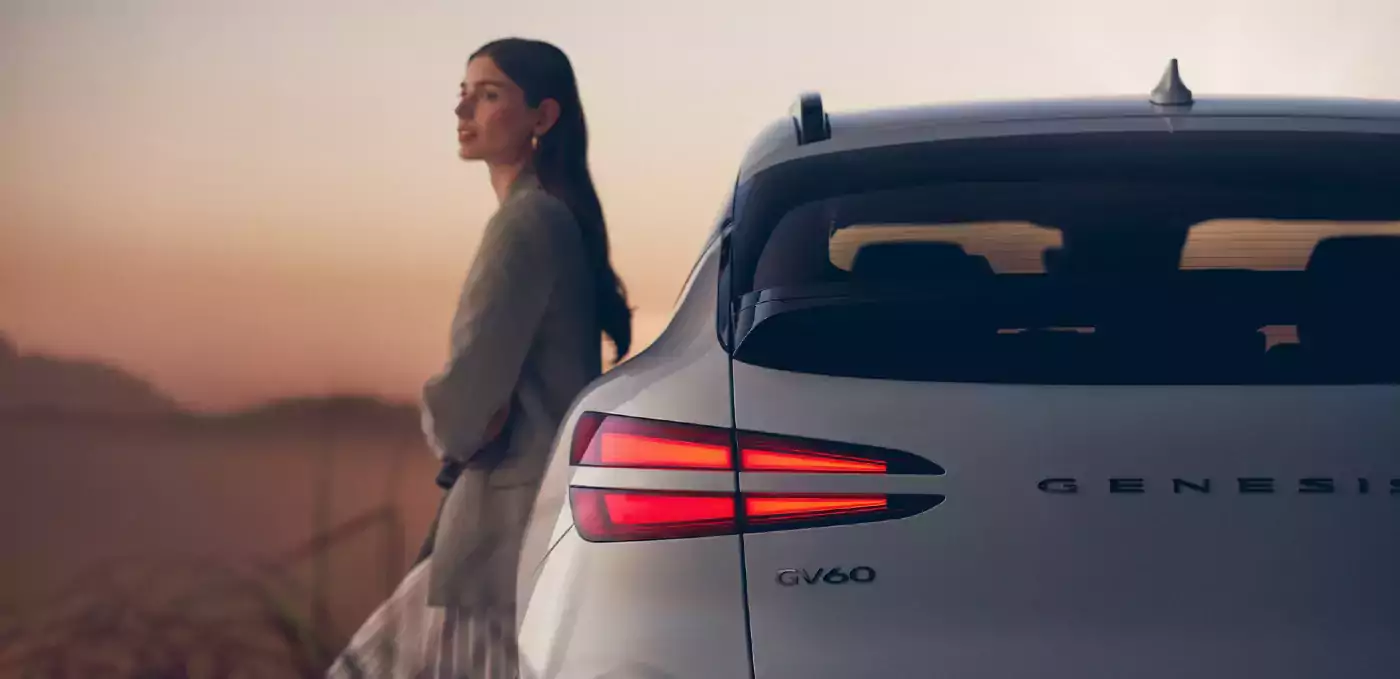Samsung Galaxy users will be able to use their smartphone as a digital car key for the first time with the newly launched luxury EV, Hyundai Genesis GV60. With Samsung Digital Key, powered by NFC and ultra-wideband (UWB) technology, users will be able to lock and unlock your car securely with your smartphone, and even safely share the key with friends and family.
At its Galaxy S21 Unpacked event earlier this year, Samsung announced a series of partnerships with automakers. The Hyundai Genesis GV60 will become the first vehicle to showcase the innovative new technology when it launches in September, starting in Korea.
Samsung’s digital key is powered by advanced UWB technology, a short-range, wireless communication protocol that uses radio waves to operate, much like Bluetooth and Wi-Fi. However, UWB transmits radio waves at a much higher frequency, enabling highly accurate spatial awareness and directional capabilities that allow mobile devices to understand their surroundings better.
UWB enables passive entry, so you can say goodbye to digging through your pockets and bags in search of your keys. You’ll be able to lock and unlock your car, start the engine, open the trunk and even activate personalized settings like adjusting your seat and mirror position before you enter the car — all through your smartphone and without pushing a button.
If you’re lending your car to a friend or family member for a short period, you can easily share the digital key and even set a time limit on how long the shared key will be available to them.
The solution uses Samsung’s embedded Secure Element (eSE), designed to protect your most sensitive information and encryption keys, so you never have to worry about your keys falling into the wrong hands.
The precision of UWB technology also potential relay attacks, where the radio signal is jammed or intercepted. Samsung’s digital key is fully compliant with the digital key standard as defined by the Car Connectivity Consortium (CCC), in which Samsung has been one of the driving members.
UWB technology is a short-range wireless protocol that operates by using radio waves. The higher frequency enables accurate spatial awareness and directional capabilities to help devices better understand what’s around them.
This technology enables passive entry so that you can enter your car more quickly and safely, as you won’t have to search your pockets and/or bag for your keys.

“We are proud to partner with Genesis as part of our mission to create exciting new mobile experiences that can make people’s everyday lives easier,” said TM Roh, President and Head of Mobile Communications Business at Samsung Electronics.
“As we continue to drive advancements in mobile technology like UWB, our priority is now to bring these new experiences to as many people as possible, in collaboration with our trusted ecosystem partners.”
Samsung’s digital key will be available in NFC and UWB with the Genesis GV60 initially in Korea by the end of this year. The UWB digital key is compatible with Galaxy S21+ and Galaxy S21 Ultra, Galaxy Note20 Ultra and Galaxy Z Fold2 and Galaxy Z Fold 3.
“GV60 will set the bar for luxurious electric vehicle representing the electrification of the Genesis brand,” said Albert Biermann, President and head of R&D division at Hyundai Motor Group.
“The partnership with Samsung Electronics will strengthen our efforts to provide truly differentiated experiences for our customers to interact with Genesis vehicles.”
The concept of the digital car key isn’t new. Apple has partnered with BMW on a digital car key for the luxury automaker’s vehicles. Currently, any BMW Series 1, 2, 3, 4, 5, 6, 8, X5, X6, X7, X5M, X6M, or Z4 can use CarKey – as long as the car was manufactured after 1 July 2020.
With the release this month of iOS 15, Apple said it was broadening support for the use of digital car keys, as well as house and hotel keys, through its Wallet app.



